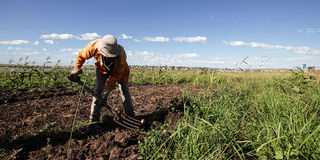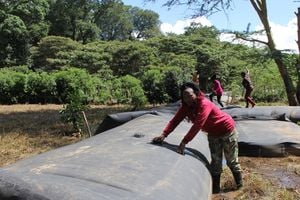Who is really weaponising food?

What made me write this piece is the growing number of comments on how Russia allegedly undermines Africa’s food security.
What made me write this piece is the growing number of either ill-informed or politically motivated comments in the press and in social media on how Russia allegedly undermines Africa’s food security by ending the so-called “Black Sea grain deal”, which will make food prices skyrocket.
Most of these writings are inspired by EU and US demagoguery intended to accuse Russia of “weaponising food to make Africans suffer”.
But they usually “forget” to mention that the UN and Turkiye-brokered deal purported to safeguard global food security had two parts. One was Russia’s obligation to allow export of Ukrainian grain through the Black Sea ports, and the other – the obligation of the West to lift the illegal restrictions that they unilaterally imposed on the Russian exports of food and fertilisers to the global market.
For more than a year, Russia has been faithfully implementing, in letter and in spirit, all its obligations.
Russia has been pursuing a global humanitarian cause, while the West was after cheap political and commercial gain selfishly channeling most (26 of 32 million tons) of the Ukrainian grain to EU and other higher-income countries, and jeopardising all attempts by Russia to access the international markets.
If EU, US, and the like were honestly concerned about Africa’s food security they would have done whatever it takes to facilitate Russia’s food and fertilisers exports to stabilize the markets, bring the prices down, and alleviate the pain of Africa and the Global South in general in a situation of economic turmoil that they themselves have created by decades of inept and irresponsible financial policies.
But what they did was exactly the opposite. Instead, they used every trick (including banking, insurance, logistics, etc.) to prevent Russia, the world’s largest producer and exporter of food and fertilisers, from accessing the markets, thus frustrating even the UN Secretary-General’s genuine efforts to resolve the situation.
Ukraine went even farther by simply blowing up the Russia-owned ammonia (a critical ingredient in fertilisers) pipeline in its territory.
It is only a direct intervention by UN’s World Food Programme that allowed Russia to implement two humanitarian (free of charge) shipments of fertilisers to Kenya and Malawi.
Now, my dear Kenyan friends, you know the whole truth about who is weaponising food.
- Mr Maksimychev is the Ambassador of Russia to Kenya. [email protected].




